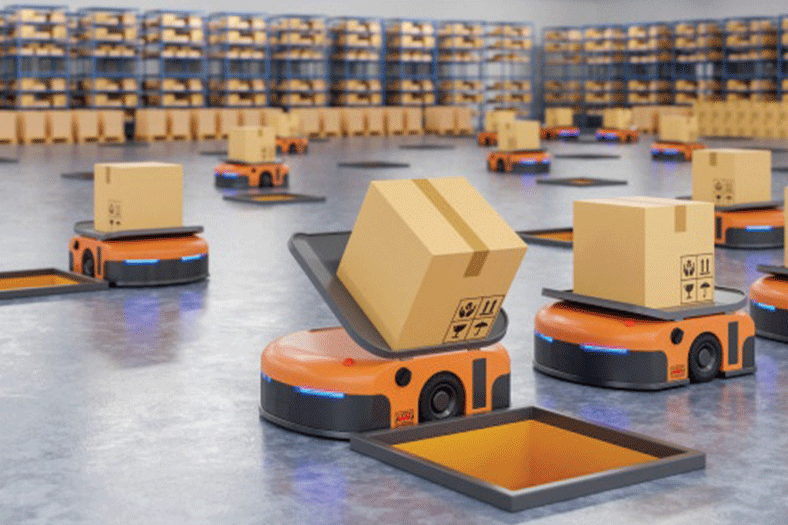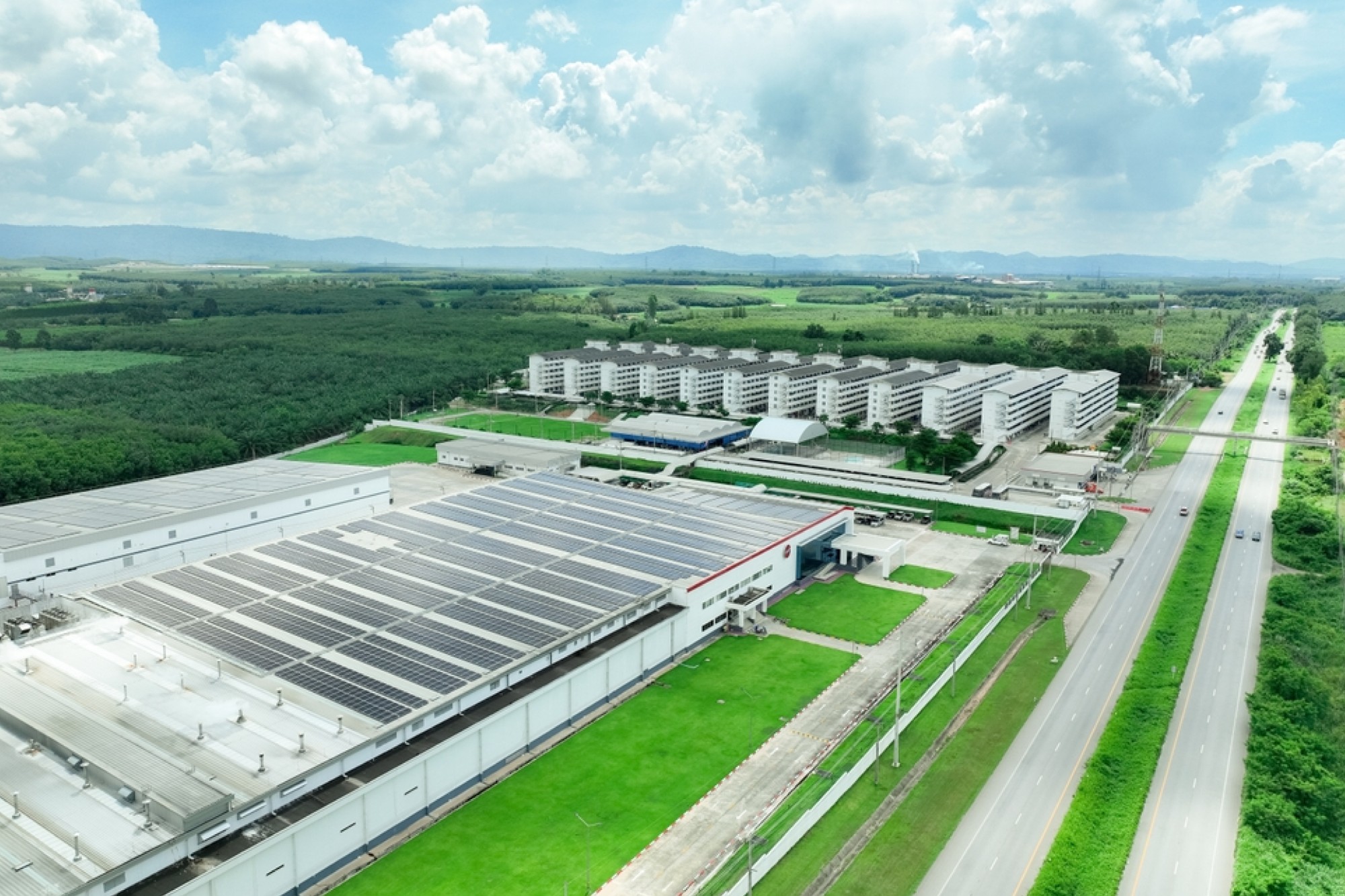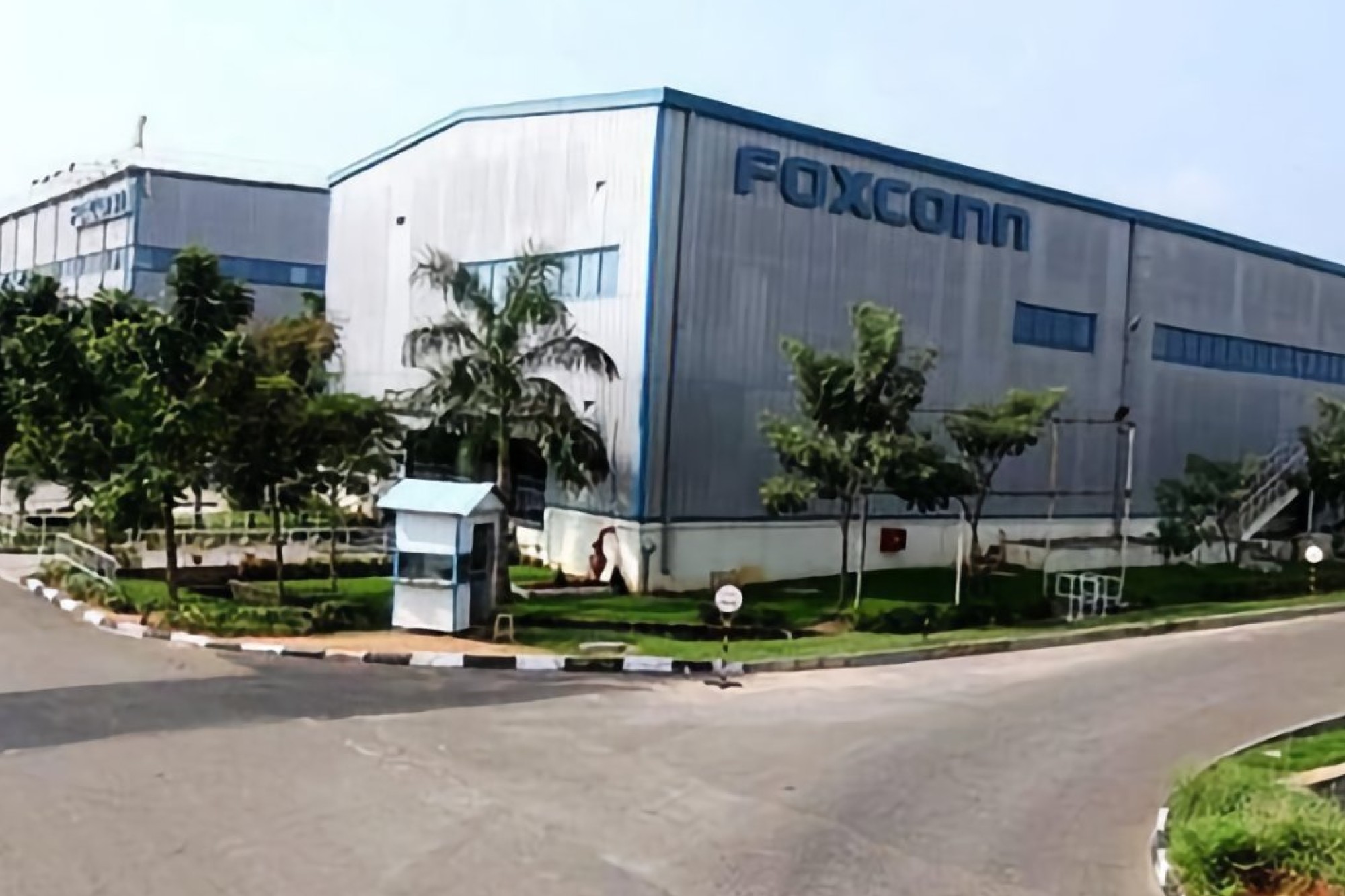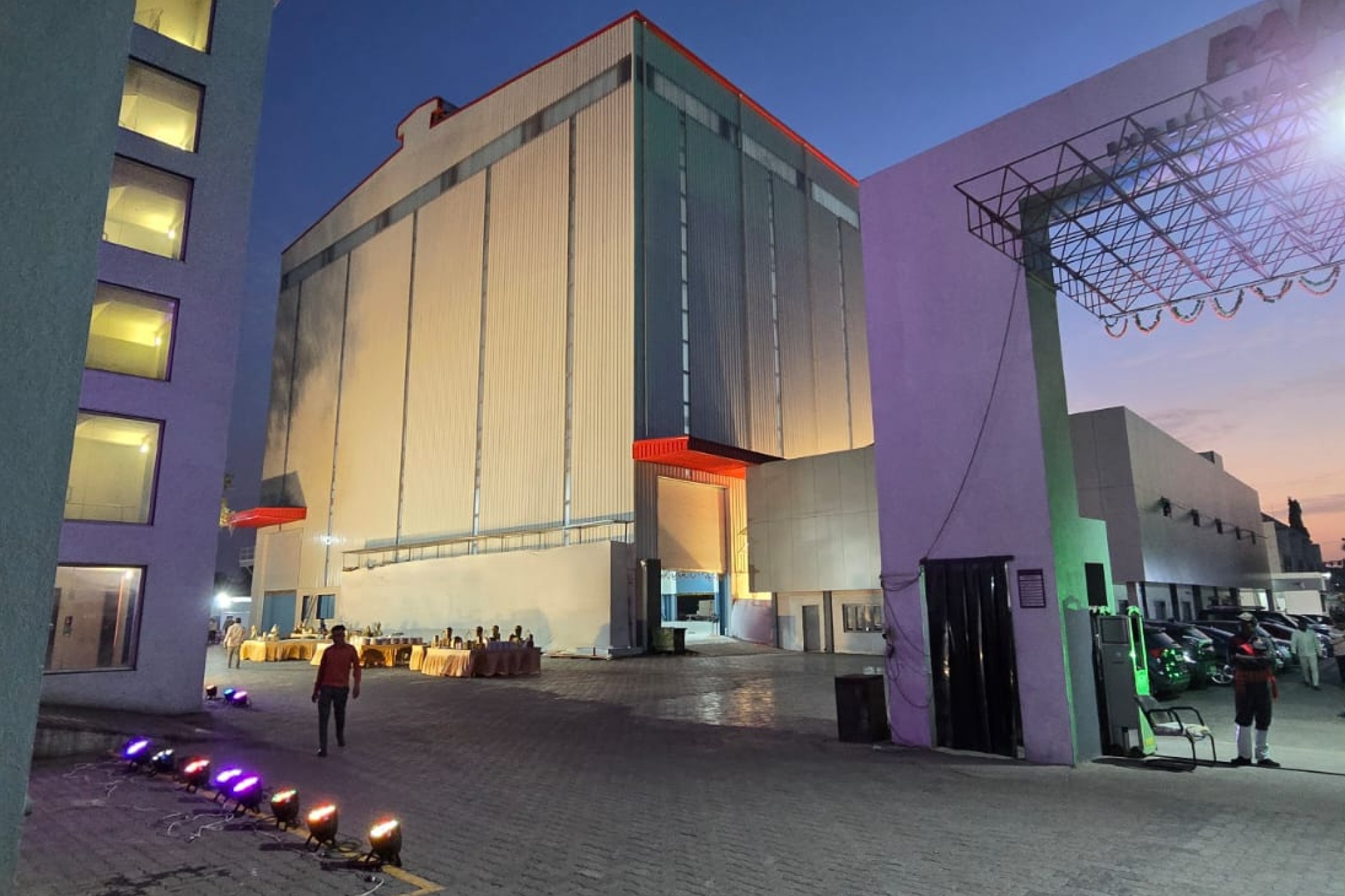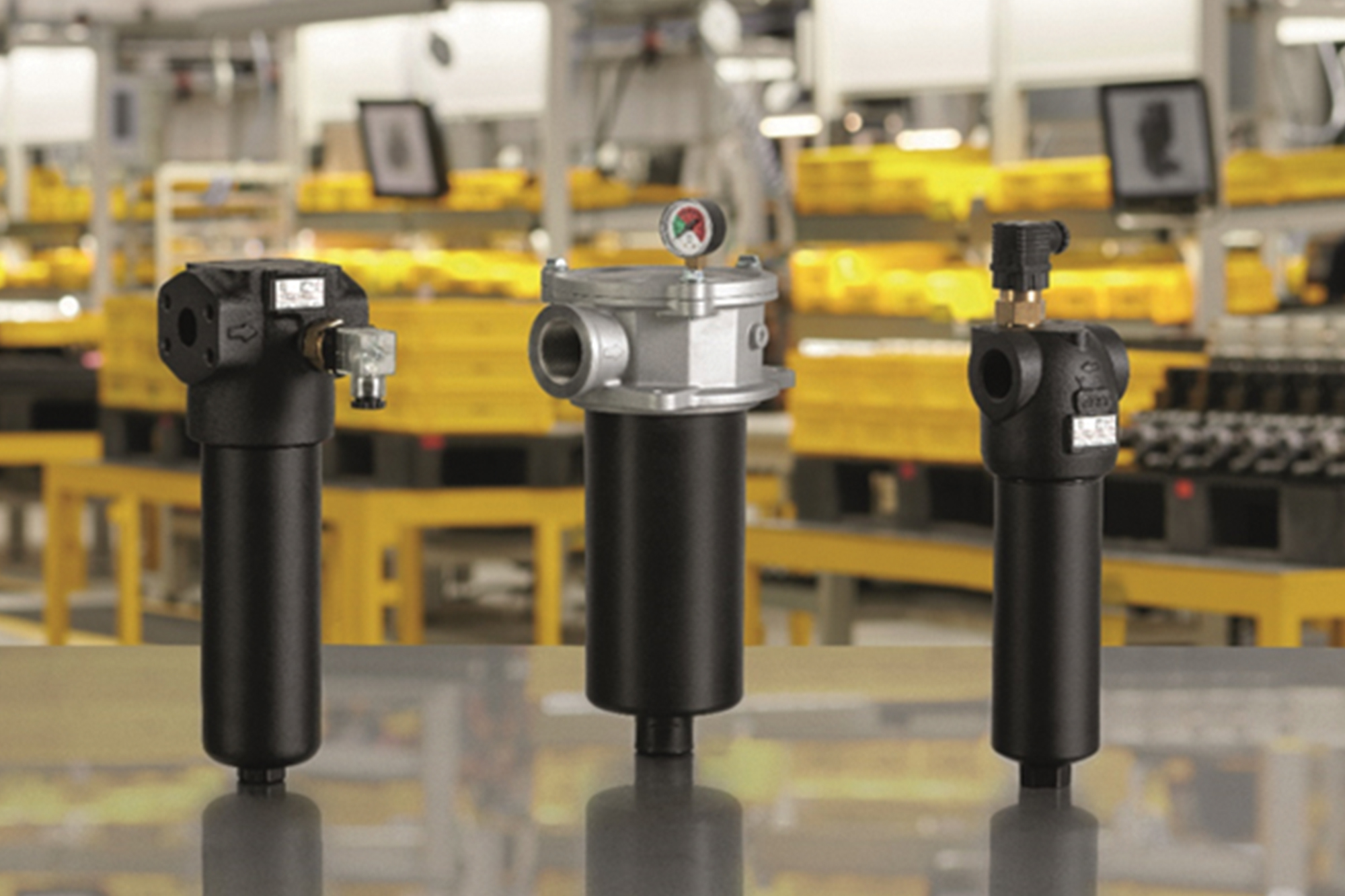Warehouse Automation
By OEM Update Editorial August 31, 2020 2:20 pm IST
A closer look at how automation can improve warehouse efficiency and productivity.
Today, automation is at the core of modern warehouses. Advanced machines and software are transforming the warehouses by adding intelligence in their operations.
Frost & Sullivan’s analysis finds that the global warehouse automation market is expected to nearly double its size, expanding from $14 billion in 2019 to $27.2 billion by 2025 whereas research firm LogisticsIQ estimates that the global warehouse automation market will grow from $13 billion in 2018 to $27 billion by 2025, at a CAGR of 11.7 percent between 2019 and 2025.
Warehouse efficiency, process optimisations and productivity are the most important strategic goals for any organisation because in today’s fast growing manufacturing landscape without proper material management, achieving higher efficiency and profitability is impossible, states Ninad Deshpande, Head – Marketing & Corporate Communication, B&R Industrial Automation.
A recent survey showed that industries expect warehouse automation adoption to double over the next five years to create competitive advantage. To overcome various challenges many warehouses have already implemented automation solutions that aid in automating repetitive tasks and reduce errors. Today warehouses are spread across acres of land and managing such huge warehouses require precise management and robust, reliable networking capabilities from warehouse to IT infrastructure. Automated guided vehicles (AGVs) are simplifying warehouse works in saving time for loading, unloading and shifting of materials. Introduction of data connectivity and implementation of MES and WMS system has brought a huge boost in warehouse technology. A networked warehouse presents countless opportunities for process optimisations as well as managing inventories, said Deshpande.
According to Sunil Mehta, General Manager – Automotive Business Development Department, Factory Automation & Industrial Division, Mitsubishi Electric India, automation not only helps manufacturers achieve greater warehouse productivity, but it can also drive significant cost savings. “Warehouse management software, on the other hand, enables facility managers to find out inefficiencies and address them. It becomes easy to track down how much time an average warehouse operator takes to complete a task,” he adds.
Once the inefficiencies in a warehouse operation are detected, one can take steps to eliminate them by deploying automated material handling and management systems. Use of AGVs, robotics for material handling, automatic storage and retrieval systems and integration of these systems to ERP software will improve warehouse efficiency and productivity, opines Mehta.
Rapid growth of e-commerce – a challenge for intralogistics sector
The intralogistics sector is facing new challenges, at least because of the rapid growth of e-commerce, observes Bhaskar Mandal, Head, Digital Industries, Siemens Ltd. He said, “Growing inventory turnover rates with ever-shorter storage periods, small order quantities with fast delivery times, increasing return rates, and increased delivery quantities on short notice – all require flexible, scalable intralogistics processes with maximum reliability and availability.”
Digitalization allows companies to understand, deconstruct and realign their operational approach more precisely to meet market and consumer demands. When they decide it’s time to grow, digitalization provides the insights, information and technologies companies need to create agile fulfilment facilities, which can be scaled, quickly and cost-effectively, to meet changing business or consumer needs.
According to Mandal, “By using real-time information of fulfilment centre operations – rather than historical data and best-guess forecasts – companies can decide on the facility’s size, location and inventory. Digital modelling tools, such as digital twins and simulations, can provide the Proof of Concept (POC) before investments are planned.”
Every aspect of the process needed to commission, plan and develop a new fulfilment centre, from idea through to start-up, can be carried out, simulated, tested and optimised in the virtual world prior to giving permission for construction to commence.
Siemens helps machine manufacturers and end-customers to access the advantages of digitalization with their consistent end-to-end portfolio for all key warehouse technologies. “Equipping autonomous guided vehicles, conveyors and automated storage systems with seamlessly integrated automation and drive systems is just one part of our offering,” Mandal said. “It also includes developing new solutions for challenges of today and tomorrow by means of targeted use of the digital twin and the unique combination of our industry expertise, automation products, PLM software and Cloud-based IoT operating systems.”
Siemens works with its customers to identify areas where digitalization will improve performance, productivity and deliver fast ROI. Then, when the project is complete, the company takes the learnings, and the success, and move on to the next step. Hence technology aside, at the core of our customer engagements is partnership – and a step-by-step road to automation and digitalization that builds on mutual success, avers Mandal.
Mobile cobots on the moveModern warehouses typically handle tens of thousands of SKUs and must deliver high throughputs and accuracy to meet the rising demands of the consumers. A key demand in such warehouses is to identify material location and retrieve it on demand. Automation plays a pivotal role here since manual operations cannot deliver the productivity required by such complex operations, said Sameer Gandhi, Managing Director, OMRON Automation, India. OMRON’s autonomous robot MoMa is one such solution that is used in warehouses where a cobot mounted on a mobile robot moves and picks items from various bins.
Warehouses can also utilise a fleet of mobile robots to move material within the warehouse, Gandhi suggests. In his opinion, many conveyors criss-cross a modern warehouse and smart sensors mounted on these conveyors can help predict failures. Also, bar code readers are used to sort packages by reading the destination (on the package) and move them along the appropriate conveyor.
Automation in the automotive industry
Prashanth Doreswamy, Country Head, Continental Corporation and Managing Director, Continental Automotive India believes, automation will be the norm going ahead, across various processes and levels. He said, “The benefits of automation have been seen to be growing in the automotive industry helping to reduce the physical labour as and when required. Intelligent machines and software offer a futuristic approach to handle increased warehouse density and volume.”
Automation eliminates many of the time-consuming steps involved in manual processes. It can reduce unnecessary costing and improve the quality of outcomes as well. Some of the other tools like TOMS (Transport Order Management Systems), Increasing EDI and ASNs based supplies in inbound logistics, using only GPS enabled vehicles in outbound logistics across all its plants, and using Data Lake and in-house Cloud services, have helped Continental in moving towards digitization journey of the company’s SCM function, informs Doreswamy.
Quotes
Warehouses can also utilise a fleet of mobile robots to move material within the warehouse.
Sameer Gandhi, Managing Director, OMRON Automation, India
By using real-time information of fulfilment centre operations – rather than historical data and best-guess forecasts – companies can decide on the facility’s size, location and inventory.
Bhaskar Mandal, Head, Digital Industries, Siemens Ltd
Automation not only helps manufacturers achieve greater warehouse productivity, but it can also drive significant cost savings.
Sunil Mehta, GM – Automotive BD Dept, Factory Automation & Industrial Division, Mitsubishi Electric India
Automation will be the norm going ahead, across various processes and levels.
Prashanth Doreswamy, Country Head, Continental Corporation & MD, Continental Automotive India
A networked warehouse presents countless opportunities for process optimisations as well as managing inventories.
Ninad Deshpande, Head – Marketing & Corporate Communication, B&R Industrial Automation
Cookie Consent
We use cookies to personalize your experience. By continuing to visit this website you agree to our Terms & Conditions, Privacy Policy and Cookie Policy.



